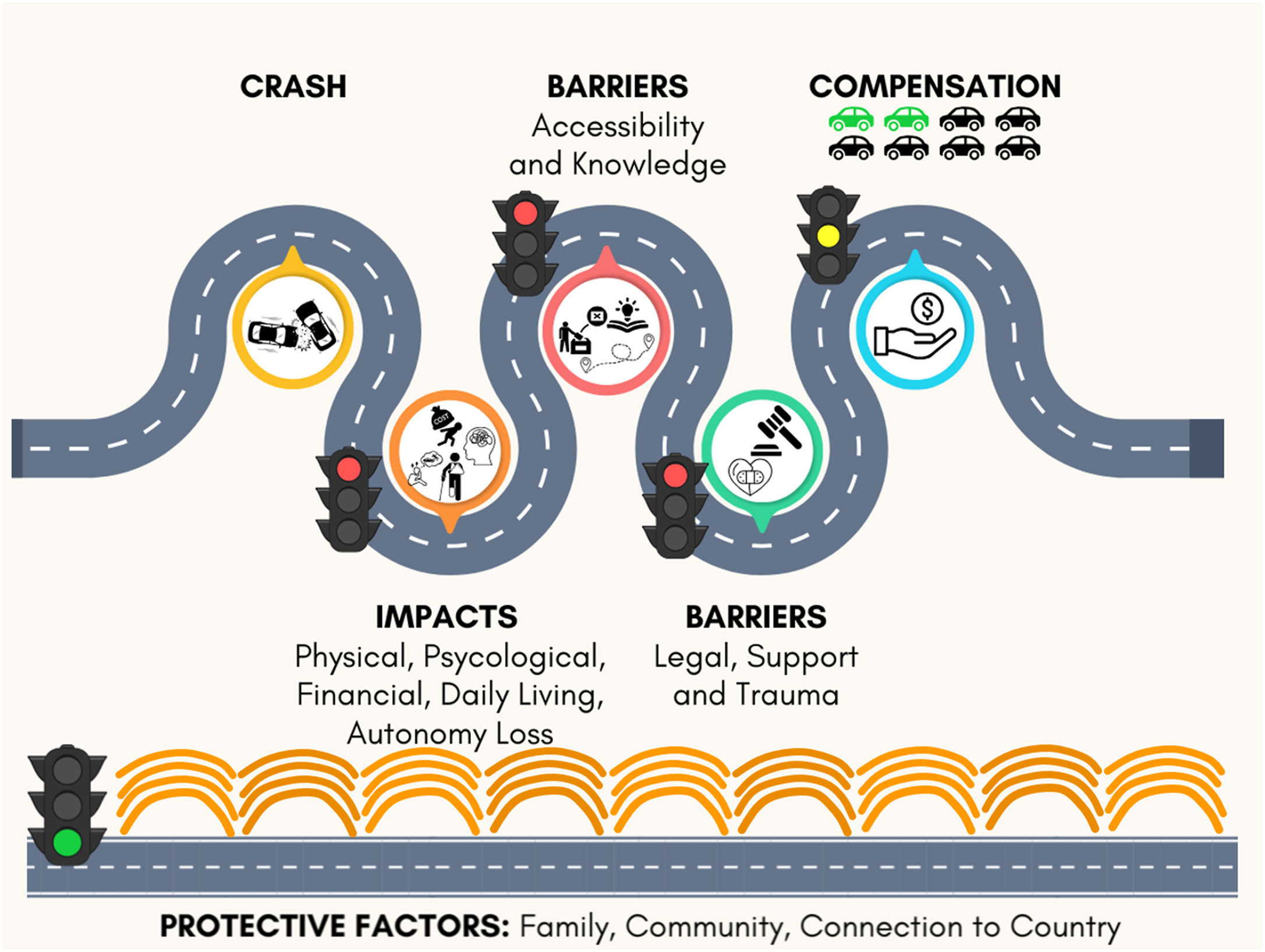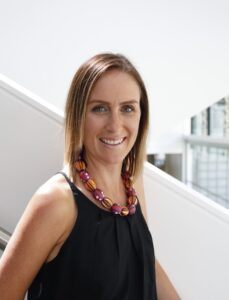
The magnitude and complexity of road traffic injuries for Aboriginal and Torres Strait Islander people is compounded by a problematic compensation system with structural barriers and systemic inequities according to new research by Flinders University.
Published in the Journal of Transport & Health the study highlights the experiences of Aboriginal and Torres Strait Islander people navigating Australia's road traffic injury compensation system.

"Our findings make it clear that urgent and meaningful reform is needed in compensation schemes to ensure they are accessible, supportive, and culturally appropriate for Aboriginal and Torres Strait Islander peoples," says Lead author Associate Professor Courtney Ryder, from FHMRI Trauma and Injury.
Road accidents are a major health concern for Aboriginal and Torres Strait Islanders, with transport-related injury being the second leading cause of fatal injury (23%) and the fourth leading cause of serious injury (8.2%).
The study - a first of its kind in Australia – comprised eight 'yarning' sessions - an Indigenous research method for data collection – with Aboriginal adults living near major highways in metropolitan, rural and remote regions.
"We found that many Aboriginal people face complex challenges when seeking support after a road traffic injury, with participants reporting a lack of awareness about compensation schemes, difficulty navigating bureaucratic processes, and a system that fails to address culturally specific needs," says Associate Professor Ryder.
"Through yarning sessions, we heard about the deep toll of injuries-not only physically, but emotionally and economically with many reporting ongoing mental health issues, a fear of re-injury, and difficulty returning to work.
"Some were forced to modify their job roles without employer assistance, often due to a lack of knowledge around injury rights or fears of losing employment."
The research reveals a ripple effect that goes beyond the individual, with injury often impacting families and communities, undermining important cultural values such as self-determination and connectedness.
Associate Professor Ryder says that many Aboriginal participants reported confusion, delays, and a lack of support in the compensation process.
"Even when compensation was received, it often failed to account for long-term mental health consequences or cultural needs such as the ability to connect with Country-a vital part of the healing journey for many Aboriginal people," she says.
"Feelings of injustice and differential treatment were common, echoing concerns frequently raised by non-Indigenous claimants but compounded by experiences of systemic racism unique to Aboriginal and Torres Strait Islander peoples."
The study's authors are calling for a national overhaul of compensation and return-to-work programs, urging policymakers to adopt co-designed, strength-based models that centre Indigenous knowledge and cultural determinants of health.
Key recommendations include:
- Community-driven education campaigns to raise awareness of compensation rights.
- Early, culturally safe interventions with tailored psychological and physical rehabilitation.
- Inclusion of Aboriginal Community Controlled Health Organisations (ACCHOs) and Aboriginal Health Workers.
- Compensation processes that acknowledge and support connection to Country as part of recovery.
- Health system-based navigators to help guide Aboriginal claimants through complex legal and medical systems.
Despite the many barriers, family and community were identified as crucial sources of strength and resilience.
"Participants emphasised the healing power of cultural connection, particularly to Country, and underscored the importance of culturally grounded care in achieving better outcomes," says Associate Professor Ryder.
"With the upcoming National Injury Prevention Strategy 2020-2030 2020-2030, and continued development of national road safety policies, this is a critical moment to embed Aboriginal voices, needs, and cultural values into the design of Australia's injury compensation frameworks."
Full list of collaborating institutions:
- College of Medicine and Public Health and Flinders Health and Medical Research Institute (FHMRI), Flinders University, Adelaide, South Australia, Australia
- The George Institute for Global Health, Newtown, New South Wales, Australia
- School of Population Health, University of New South Wales, Sydney, New South Wales, Australia
- Far West Community Partnerships, Ceduna, South Australia, Australia
- School of Public Health, University of Illinois Chicago, Chicago, IL, USA
- Women's and Children's Health Network, North Adelaide, South Australia, Australia
- Translational Health Research Institute, Western Sydney University, Campbelltown, New South Wales, Australia
- Royal Adelaide Hospital, Central Adelaide Local Health Network, Adelaide, South Australia, Australia
- Faculty of Health and Medical Sciences, University of Adelaide, Adelaide, South Australia, Australia
- School of Public Health and Tropical Medicine, James Cook University, Cairns, Queensland, Australia
Acknowledgements: We acknowledge the traditional lands in which this research was conducted and where outcomes were created: Kaurna Yerta, Kokatha, Mirning, Wirangu, Peramangk, Ngadjuri, Eora (Bedegal and Gadigal) Nations, Darkinjung, Dharawal, Dharug, Tharawal, Gundungurra, Wonnarua, Wiradjuri, and Miami Three Fire Peoples (Bodewadmi, Ojibwe and Odawa), and pay respect to their Elders, past, present and emerging. This work was supported by the Lifetime Support Authority (Grant Number R2214). CR is supported by an NHMRC Investigator Grant (EL1 - 2017719).
The paper, '"I didn't know nothing" – yarning up on access to compensation from road traffic injury with Aboriginal people,' by Courtney Ryder, Patrick Sharpe, Shanti Omodei-James, Georga Sallows, Brett Shannon, Holger Möller, Marnie Campbell, Rebecca Kimlin, Bobby Porykali, Sadia Hossain, Nicole Kelly, Dan Ellis, Tachelle Ting, Jody Gray, Hossain Afzali and Rebecca Q. Ivers, was published in Journal of Transport & Health. DOI: 10.1016/j.jth.2025.102055






